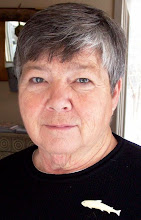 |
| One of many on-line games posted during the 2020 quarantine |
Pay attention. History is happening.
If you are between ages 18 and dead, somebody someday will ask you about 2020 — that time when a virus shut down the world. How will you answer? You could begin with the affects of global warming. You could jump to the increasing denigration of science that led to nearly fatal skepticism of all factual evidence — especially in the United States. Maybe you want to talk a bit about disappearing boundaries — the nomadic lives and transit of goods on a planet shrunk down to the size of a grape.
Or maybe you’ll simply shrug your shoulders and change the subject.
History is like this — day by day. While in the epicenter of events, no-one can predict how the course of human development — culturally, socially, politically, economically — could shift in totally unforeseen ways.
My grandson called me from college one night. He had an assignment to interview someone of an “older generation” and ask “what was the greatest historic event that happened in your lifetime?” If you want to inspire interesting conversation around a dinner table, throw that challenge out and be surprised at the responses.
Clearly, some events have HISTORIC EVENT written in huge letters, i.e., the assassinations of world leaders, man’s landing on the moon, war — its beginning and its ending. But others creep into the spotlight only decades later. One man’s answer at my own dinner party was “invention and distribution of birth control pills. It radically changed the lives of women and expectations and definitions of marriage.”
My older brother regrets that he never wrote a memoir and for good reason. He lived a unique story. He played a significant role in two wars — Korea and Viet Nam — and met with leaders who made decisions that had worldwide impact. But the memoir writing seemed an insurmountable job, a task woven into complicated political fabric, too complicated to pick apart.
Many of us feel that our stories are not worth the telling. Memoirs, we believe, based on "best sellers," are written by people who survived extraordinary afflictions or addictions. Or those that won great acclaim, prizes, recognition. But the stories that made Tom Brokaw’s book “The Greatest Generation” remarkable were those simple letters from regular young people written from foreign stations to their family or friends back home. The wonderful Ken Burns series about the Civil War soared not with the retelling of specific Civil War battles and the Gettysburg Address but those intimate details spliced together from “just folks” caught up in moments of history.
So, "just folks,” keep a diary. Write in a journal every now and then. Use your smart phone and record a snip of yours or someone else’s conversation. Take a photograph. There are millions — well, hundreds anyway — of ways to document your life. Don't tackle all 100 years. Talk about something today -- or this week -- a funny story or something poignant.
The point is it’s your life. You are existing in a unique time and place. You have a view from your perch that nobody else has.
The point is it’s your life. You are existing in a unique time and place. You have a view from your perch that nobody else has.
It matters.

1 comment:
I’ve kept my journal since early 1970s .
😊
Post a Comment